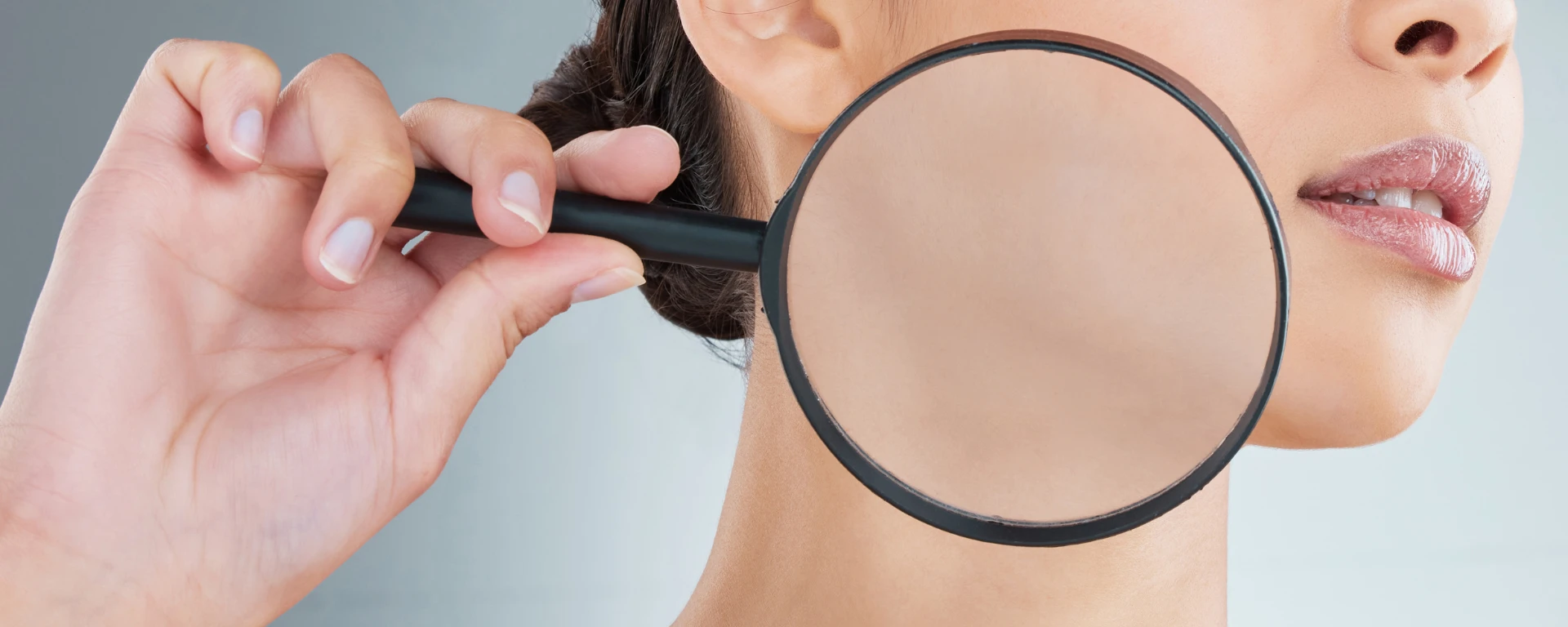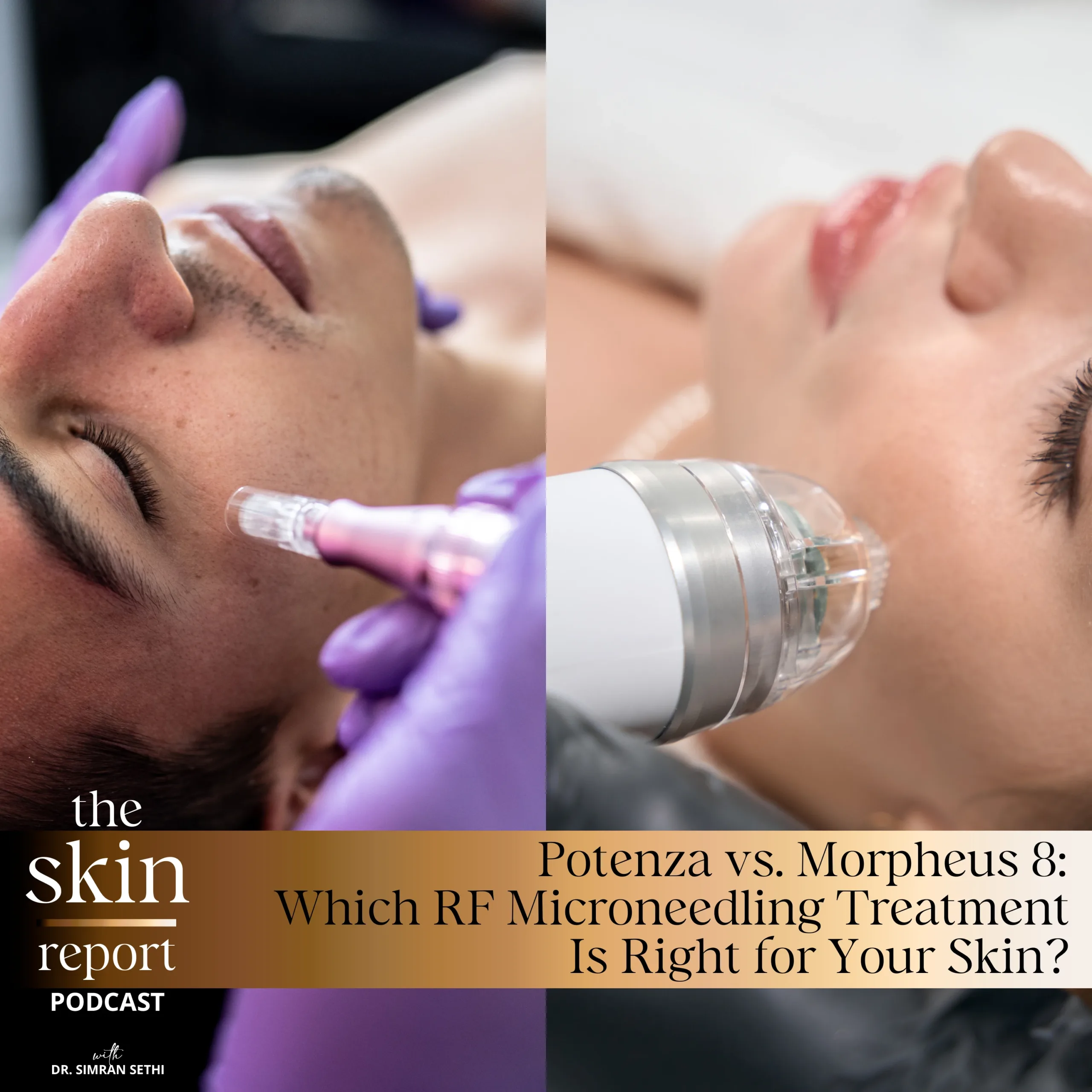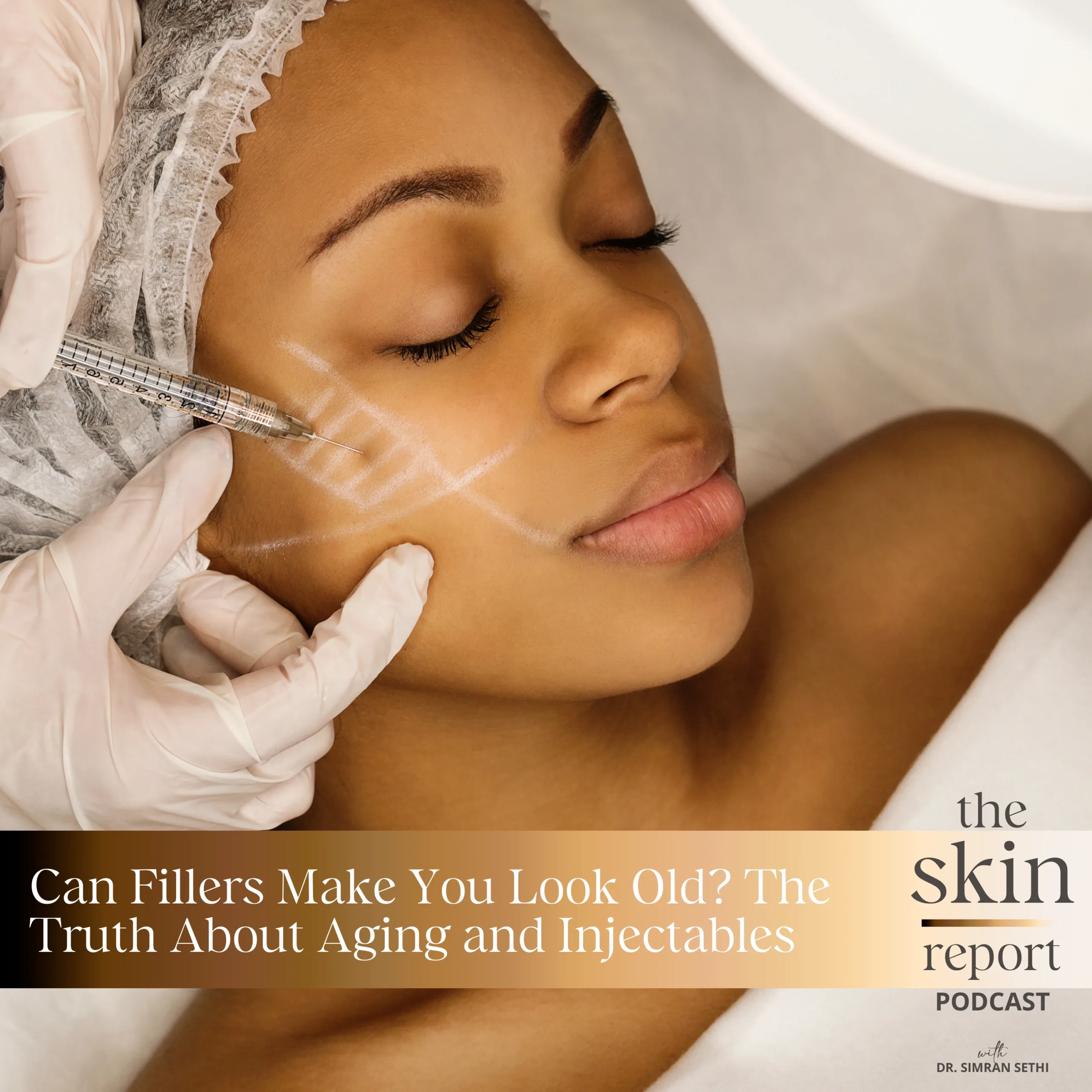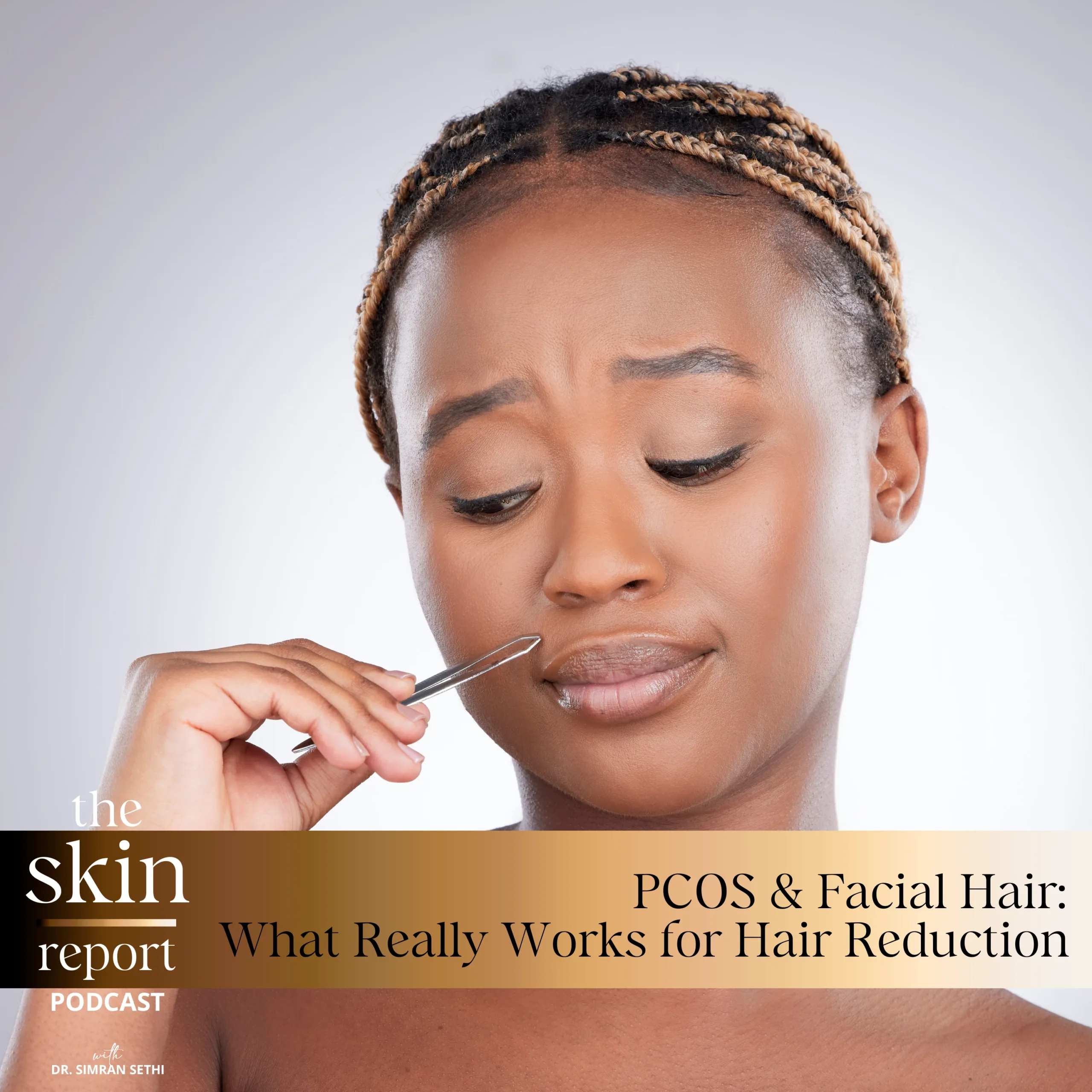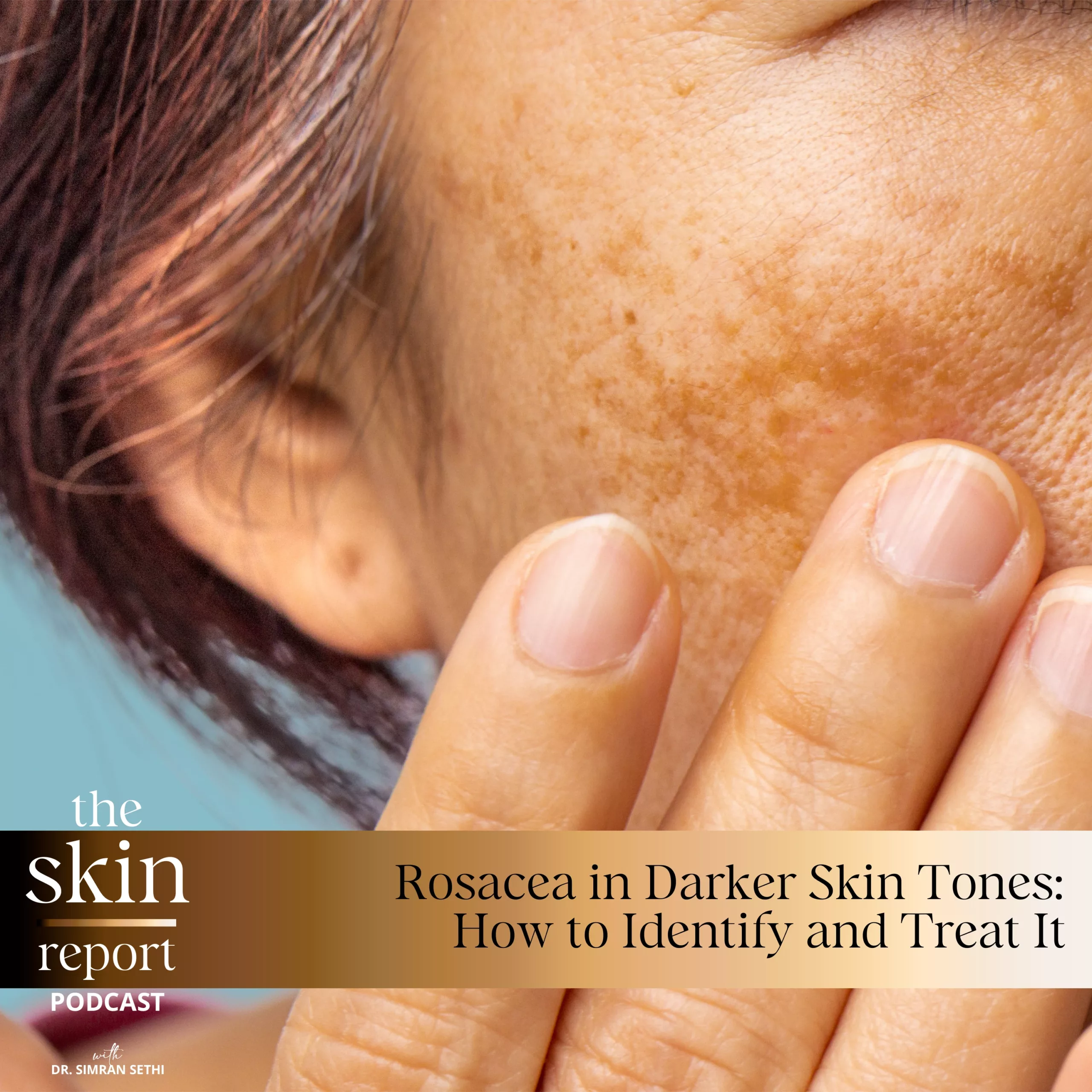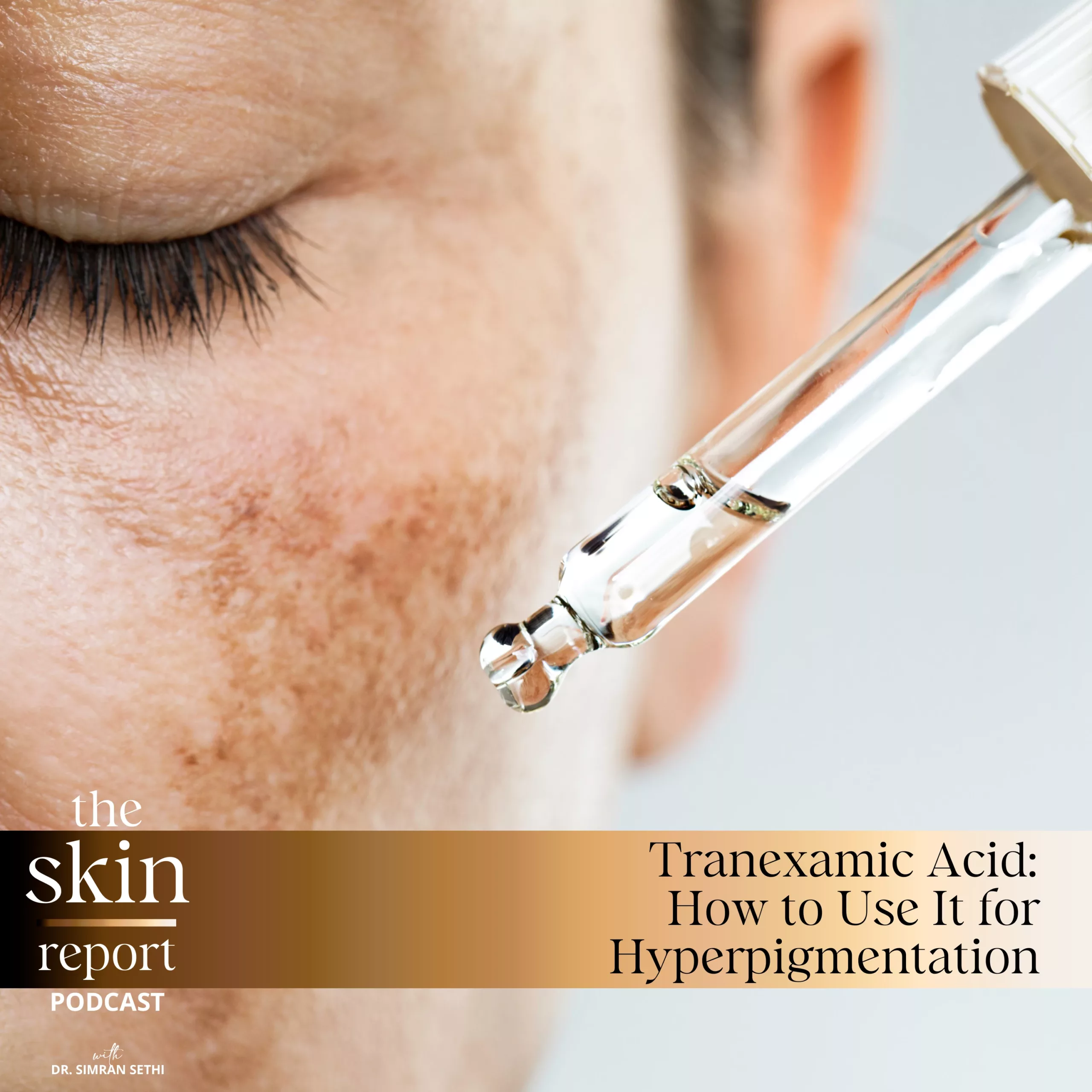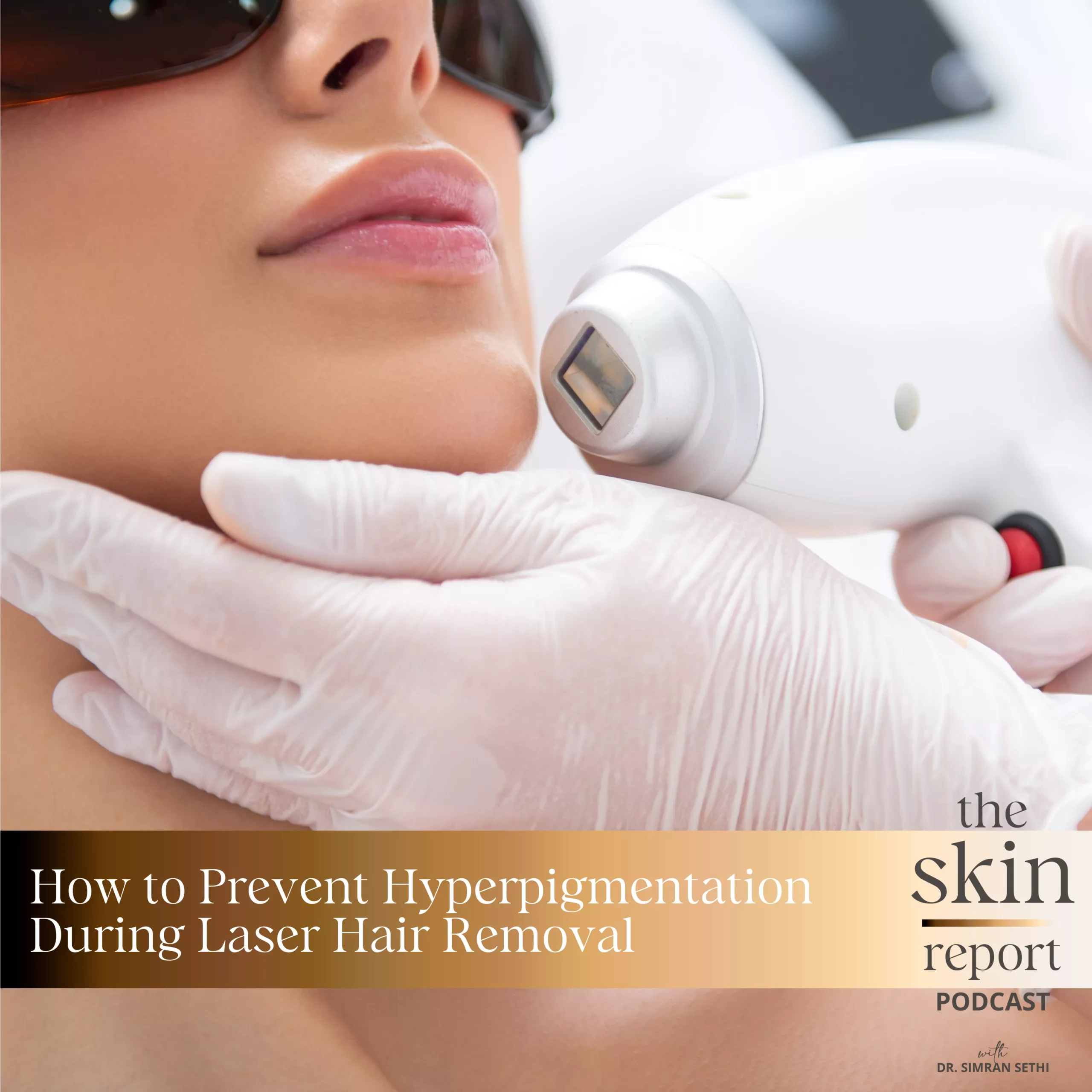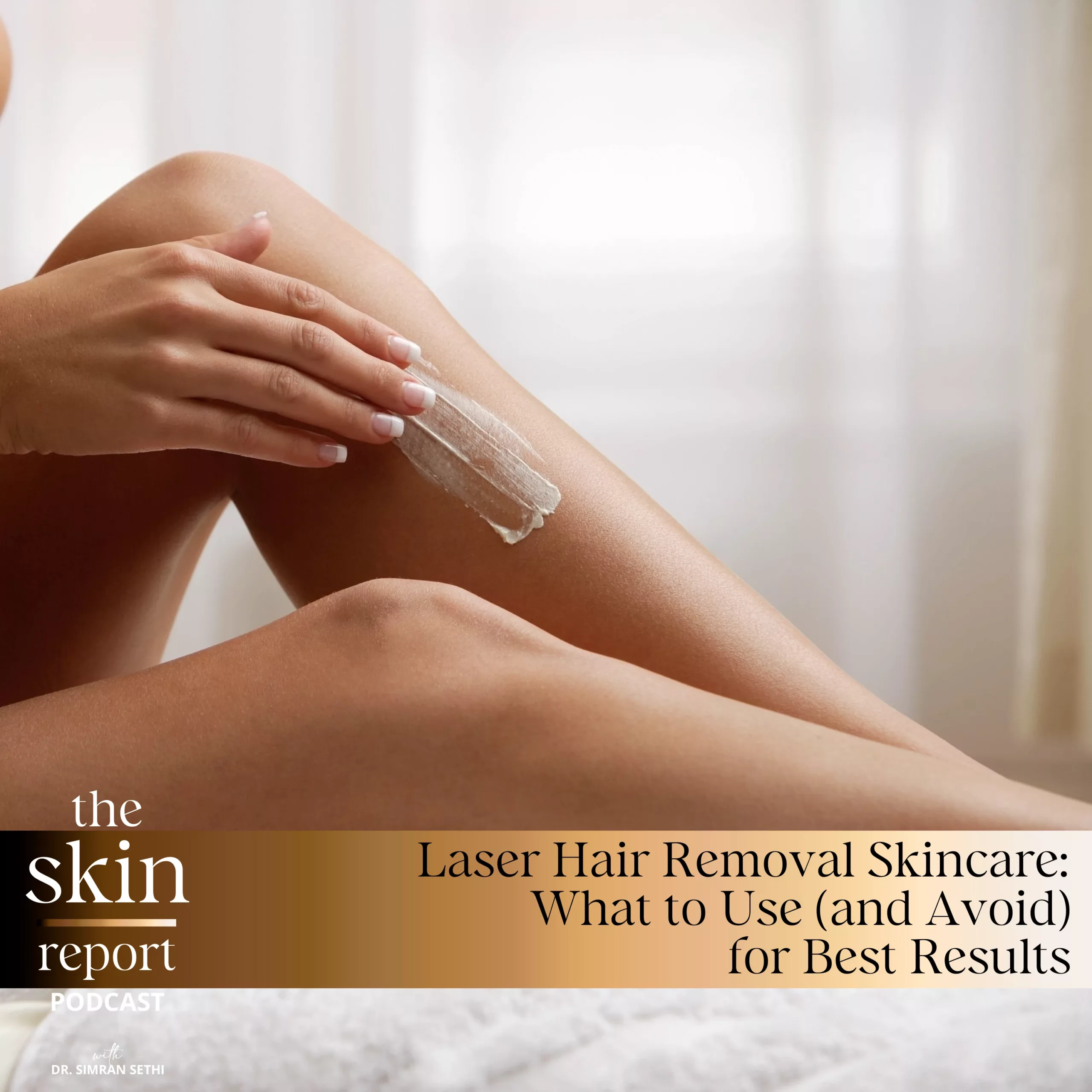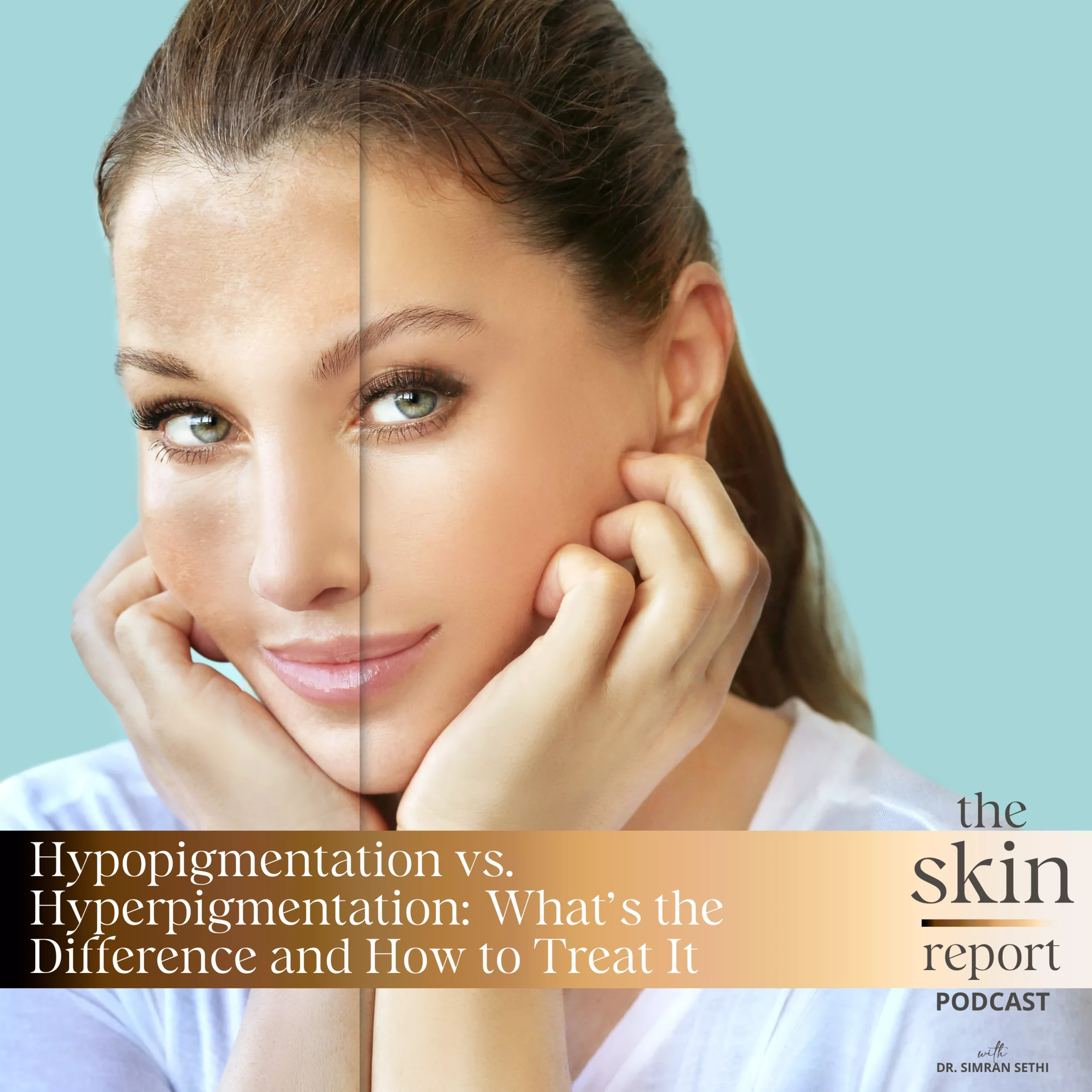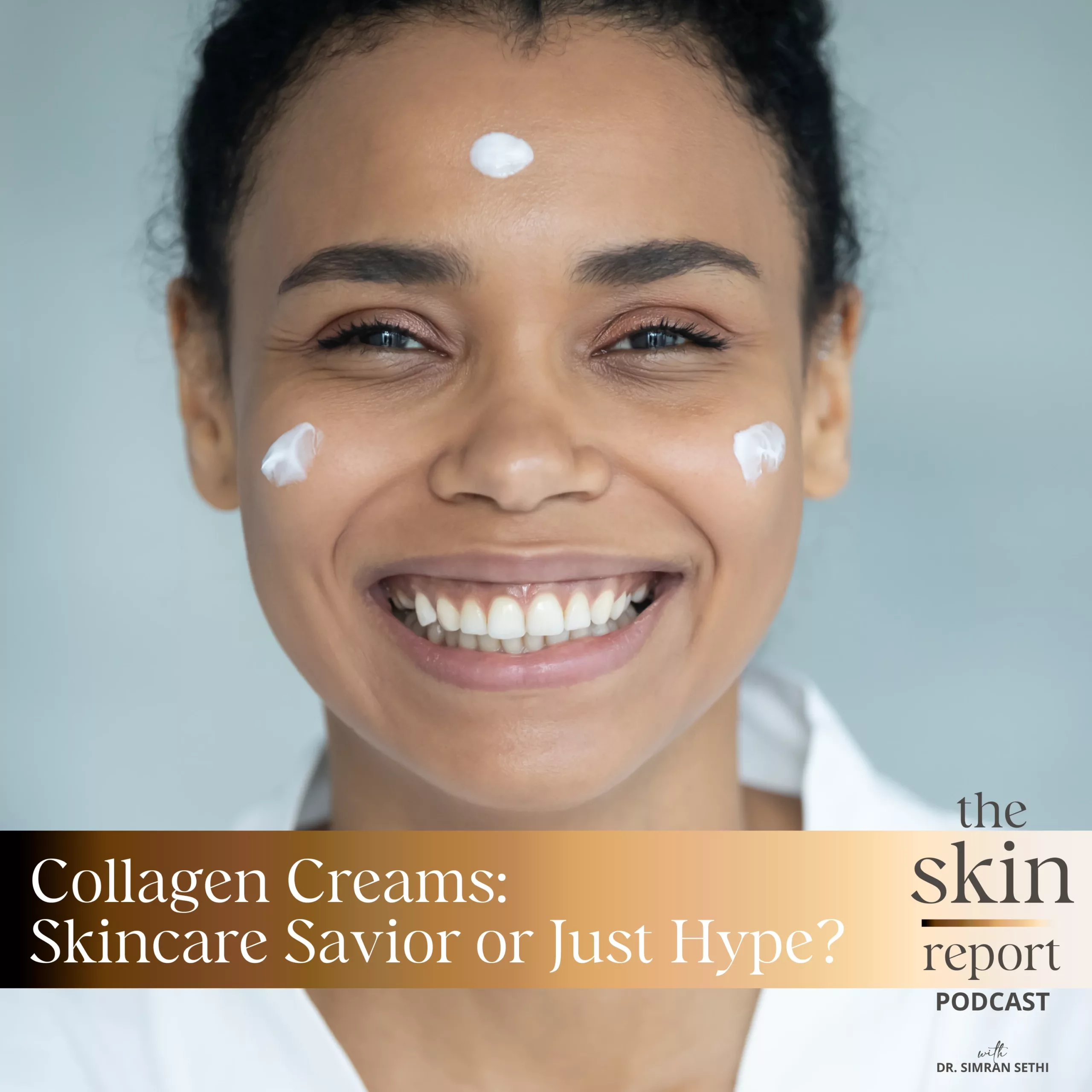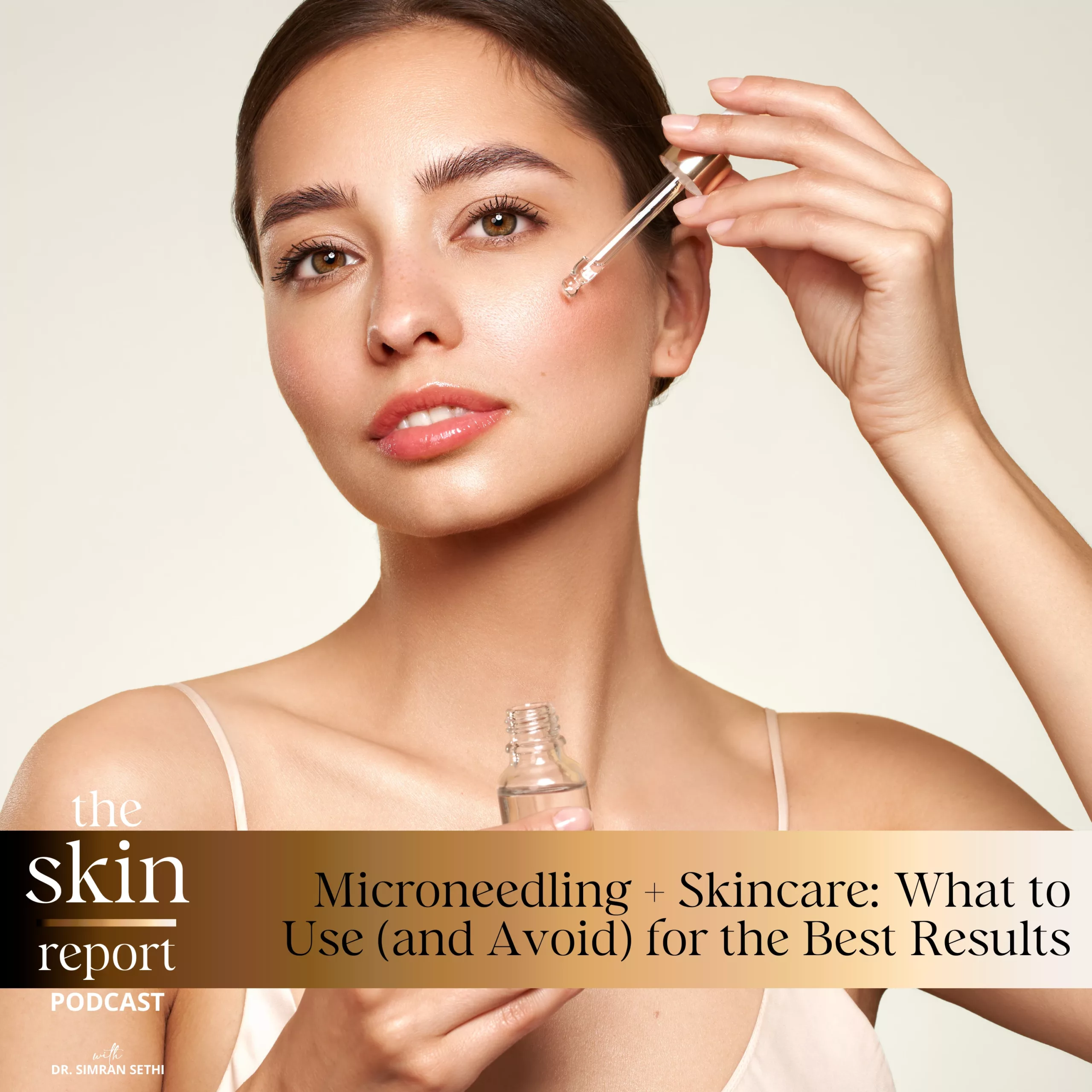The Skin Microbiome Explained:
Balancing Good & Bad Bacteria for Healthier Skin
Your skin is home to billions of bacteria—some good, some bad. But how does your skin microbiome impact acne, eczema, and overall skin health? In this episode of The Skin Report, Dr. Simran Sethi breaks down everything you need to know about maintaining a healthy skin microbiome and why your skincare routine might be disrupting it.
In this episode, you’ll learn:
✔️ What the skin microbiome is and why it’s essential for healthy skin
✔️ How exfoliants like glycolic & lactic acid affect your skin’s bacteria balance
✔️ The impact of antibiotics on acne & the skin-gut connection
✔️ Whether probiotic skincare really works—or if it’s just a trend
🎧 Tune in to learn how to protect your skin barrier and achieve a healthier, more radiant complexion! Don’t forget to subscribe and leave a review if you enjoy the episode.
Exclusive Offer for the Skin Report Audience:
Use SKINREPORT20 in the shopping cart to receive 20% discount
LEARN MORE!
The Skin Report Podcast : Subscribe and Download!
Skin By Dr. Sethi – Blog
Skin By Dr. Sethi – Skincare
Skin By Dr. Sethi – Beauty Instagram
Dr. Sethi’s Medical Spa
Dr. Sethi’s Medical Spa – Instagram
Hello everyone. Welcome back to the Skin Report. We are going to talk about the skin microbiome. We’ll discuss what is skin microbiome and then how does it affect your skin care, your skin condition. And later on, we’ll go into, does probiotic skin care actually work? I’m Dr. Simran Sethi, a board certified internal medicine doctor specializing in aesthetic medicine. Let’s get started.
Let’s start with, what is the skin microbiome? So microbiome refers to bacteria on your skin. Our discussion is going to be very similar to discussions like gut microbiome. In the last few decades, we’ve learned so much about gut health and all the good, favorable bacteria in our small intestines and our colon that help us digest food better and actually give us things that are helping our longevity. And so not just digestion, nutritional balance and longevity.
We have also learned a lot about the bacteria that we normally have on our skin that helps protect our skin from overgrowth of bad bacteria. And when you think about conditions where there may be overgrowth of bad bacteria, think about conditions like acne. When people think of acne, they generally do think of bacteria causing acne pustules or acne pustules releasing more bacteria. And a lot of times, what we don’t think about is the fact that when it comes to bacteria, we have good and bad bacteria. And when there is a condition that relates to bacterial problems, it usually is a bacterial balance problem, so the balance of bad bacteria and good bacteria.
Always, whether we’re talking about your gut or your skin, you always want to have some bacteria on it, but that bacteria has to be predominantly good, favorable bacteria. And when we think about our skin layers, there is the epidermis, which is our most superficial skin layer, and then there’s the dermis, which is our deep skin layer that houses collagen. The epidermis actually is the part of our skin that fights invasion from bad bacteria or germs, and also naturally houses bacteria. And the imbalance of good bacteria and bad bacteria is what leads to conditions like, and also conditions like eczema.
This is a very, very, very complex topic, and I don’t think that even scientifically we know enough about microbiomes on the skin. But what we do know that an imbalance of good and bad bacteria does lead to skin problems. When there is an overgrowth of bad bacteria in your skin, likely there will also be greater invasion of the skin, and that means breakdown of the skin barrier. This also means that if you break down the skin barrier first, you are going to promote invasion of any small amount of bad skin bacteria and disrupt your skin microbiome.
So the most important thing that you can do for your skin in terms of maintaining a healthy microbial balance is by making sure that you’re using products that don’t break the skin barrier. And mainly that is products that are high strength acids on your skin, like lactic or glycolic acid. There are a lot of exfoliants on the market that do a great job exfoliating, but sometimes they can be a little too strong for our skin. And depending on what kind of skin type you have, it is going to adversely affect your bacterial count.
So if you have dry skin and you’re using a glycolic or a lactic acid serum that is a little too strong, maybe it has a percentage of 5% or greater, you do run the risk of breaking your skin barrier, which will cause also a decrease in good bacteria, good microbiome of your skin, and make you more likely to have problems of this bacterial imbalance.
Second, if you are someone who has acne and you are using products that have an antibiotic in them, which is very, very, very common… A lot of people with acne are prescribed oral antibiotics like clindamycin, or they’re given products that have antibiotics in them to topically apply on the skin. These things do alter your microbiome because their job is to promote improvement of your good skin bacteria.
So now we’re going to talk about two conditions where skin microbiome health is really important. The first is if you have dry skin and you’re using an exfoliant, especially a chemical exfoliant. So there are a lot of chemical exfoliants that have glycolic acid or lactic acid. They’re good products to use. But if you use glycolic or lactic acids in a higher strength, usually I would say 5% or greater, you can disrupt your skin barrier and the healthy bacteria that is on your skin. And this is even more common in people with dry skin. So if you’re using a glycolic or lactic acid and you have dry skin, I would say that there’s a greater chance of disrupting your natural microbiome if you’re using a strength of 5% or greater.
The second scenario is acne. So when people have acne, they do have some disruption of their skin microbiome, overgrowth of bad bacteria. So commonly, they’re prescribed oral antibiotics or antibiotic creams that they apply topically. When I see someone with acne, I don’t like to prescribe them oral antibiotics because it will also affect their gut microbiome, which also then affects their skin microbiome. There is a skin-gut connection.
So I’m not a fan of giving anyone oral antibiotics if they have acne. I just don’t think that it does enough to justify it. There are better things you can do that don’t affect your gut and skin microbiome for acne. Then there’s the option of putting antibiotics topically on your skin. And that of course alters your skin’s microbiome, and it can kind of go in the opposite direction of what you’re trying to do. So in my opinion, I think, again, there are better things you can apply on your skin other than antibiotic creams.
Now, let’s get into probiotic skincare. Does it work? So probiotic skincare is promoting healthier skin microbiomes. And the best way to promote a healthy skin microbiome is not to disrupt it in the first place. Because it’s kind of like if you’re going to break your microbiome or disrupt your microbiome with something and then you’re going to fix it with something else, well, then why don’t you just not disrupt it in the first place?
So let’s talk about how you disrupt it, right? We discussed that earlier. High-strength exfoliants or acids, or applying antibiotics, or ingesting antibiotics. So instead of that, if you use an exfoliant, which exfoliants are important, go with something that’s a lower strength, especially if you have dry skin. So that’s the number one way of not disrupting that microbiome.
Second, if you have acne-prone skin, then don’t worry about applying prebiotics, or probiotics, or antibiotics on your skin. Instead, work on maintaining a healthy skin barrier, managing control of oil in the skin, and manage also the amount of hydration that is escaping your skin. People who have acne have oily skin, so they immediately think that they shouldn’t moisturize. They also start producing more oil during the day. And that’s happening because their hydration and their oil is actually escaping from their skin, and then they are producing more oil.
So I go into that in other videos in more detail. But for acne prone skin, don’t worry about applying antibiotics or pro or prebiotics in your skin. In my opinion, work on not disrupting your barrier in the first place by making sure that you have a healthy skin barrier, healthy amounts of moisturizer, and sealing your natural moisture. If you have any other questions about this topic, make sure you ask in the comments. I check those all the time. And remember to subscribe and turn on that notification bell so that whenever we release any new content.

